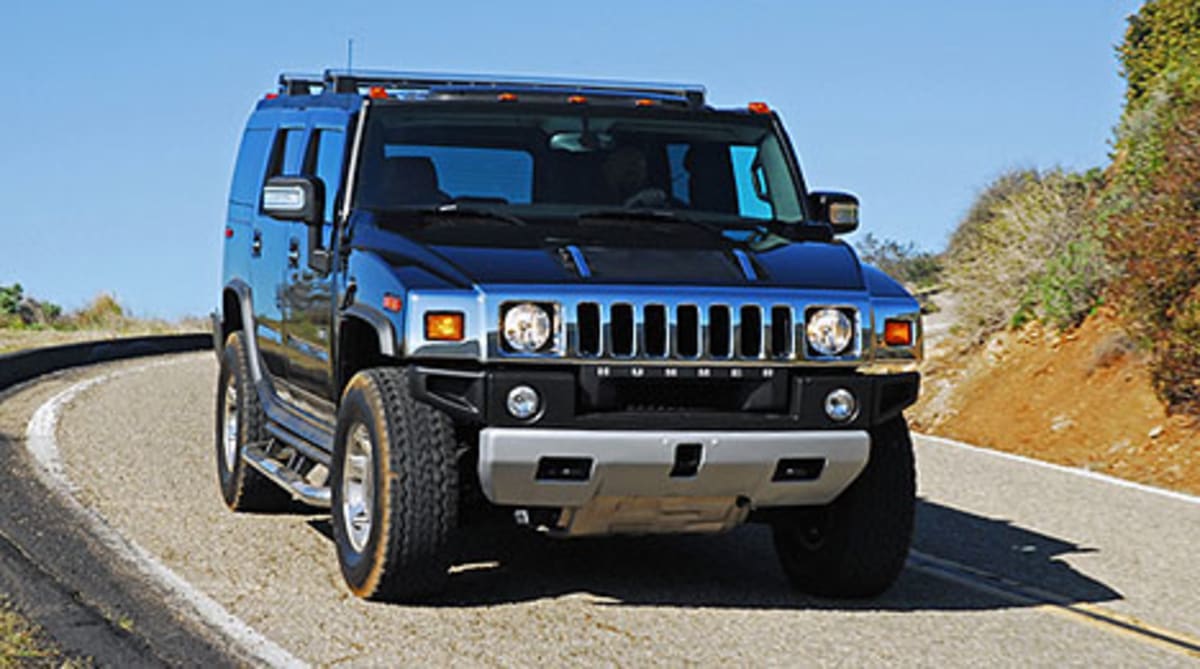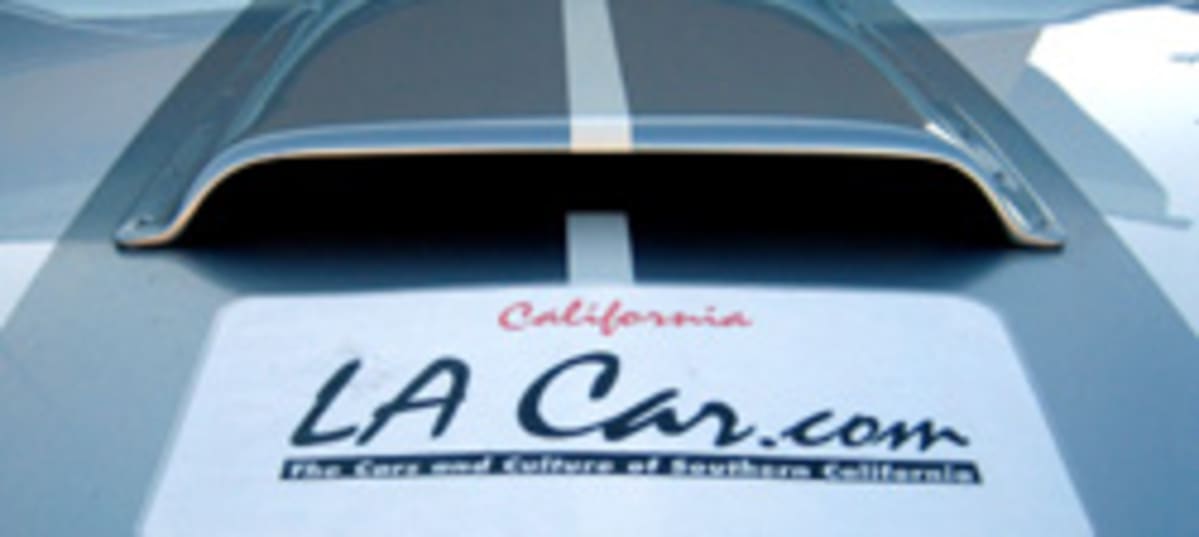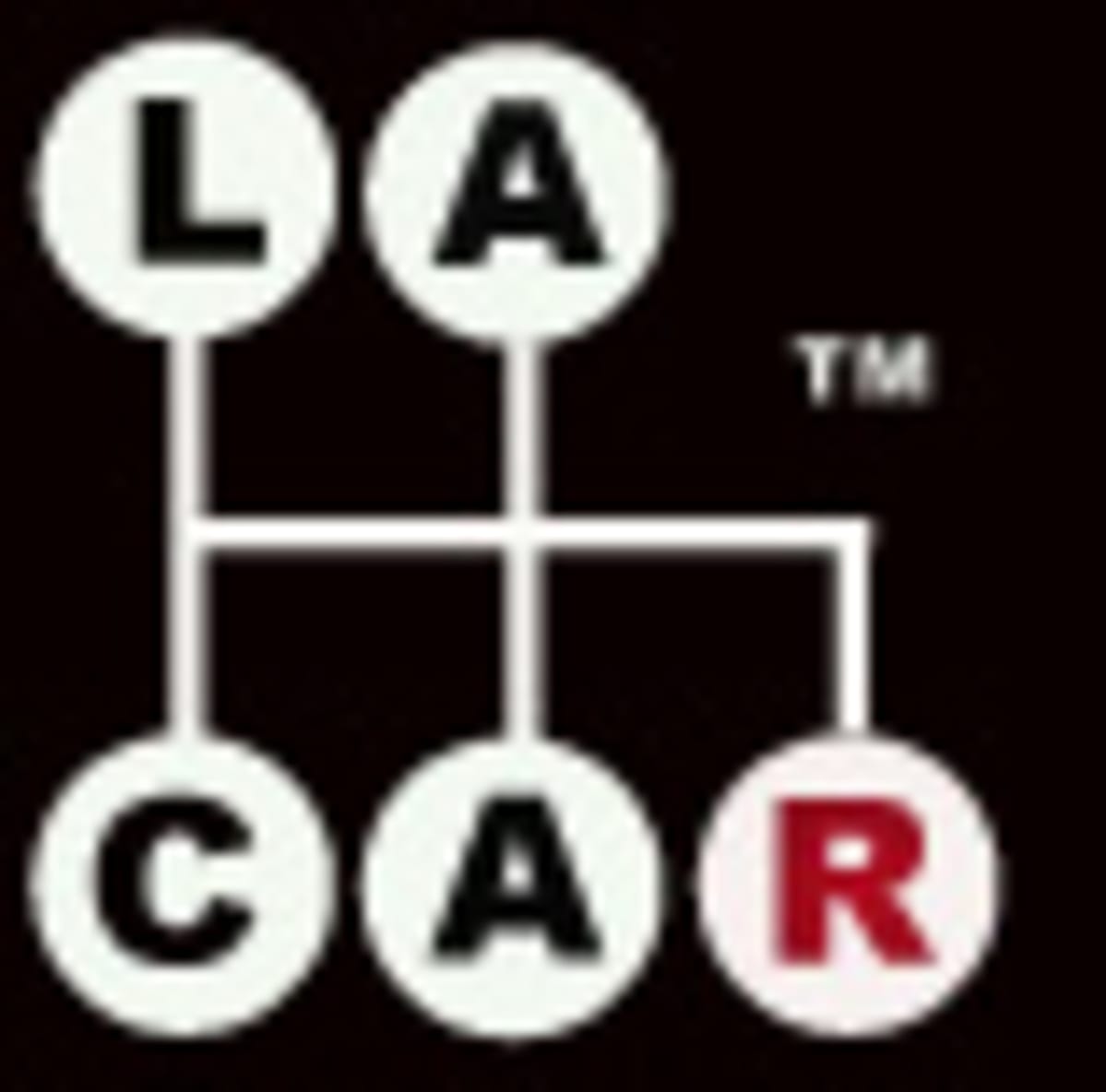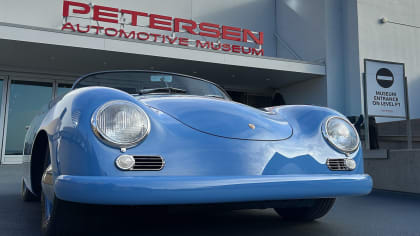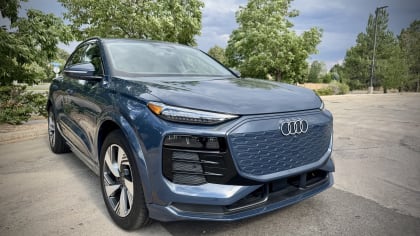BACK SEAT DRIVING - FEBRUARY 2009
This article is from our archives and has not been updated and integrated with our "new" site yet... Even so, it's still awesome - so keep reading!
Published on Thu, Feb 5, 2009
By: The LACar Editorial Staff

 Â
BT JUSTICE: BACK SEAT DRIVING
THINK GM, FORD AND CHRYSLER HAVE
IT BAD? THE CITY OF DETROIT IS IN WORSE SHAPE
Detroit is like a war-torn, third-world country.
Its children don't have a chance.
FEBRUARY 15th--We read about Detroit in the national news nearly every day
because of the plight of General Motors, Ford and Chrysler.
Tuesday, GM and Chrysler are due to submit their restructuring plans to the
federal government, which will decide whether the two companies can keep the
money Washington loaned them December - $13.4 billion for GM and $4 billion for
Chrysler.
Southeast Michigan has been devastated by job losses. Thousands of people have
lost their paychecks, homes, families and dignity. Local governments have been
hit by tax losses and increasing demand for services.
But look through all of the bad news, and group perhaps worst off are the
children in the city of Detroit.
On Friday, the Detroit News quoted U.S. Secretary of Education Arne Duncan
saying, "I am extraordinarily concerned about the poor quality of education,
quite frankly, the children of Detroit are receiving."
Duncan singled out Detroit's schools as the worst in the nation and said reform
of the city's schools will be a "huge focus" for him personally, adding, "I lose
sleep over that one. And I think the dropout rate there is devastating."
Two-thirds to three-quarters of incoming ninth-graders in the Detroit Public
Schools never earn a diploma.
That's mind blowing.
I asked a friend from Detroit about the situation.
He said a big part of the problem is a culture that doesn't value education.
For generations, illiterates could work in auto plants and earn a good living.
They could afford not only a house but also a "cabin up north," a second or
third car, several annual vacations, a boat, snowmobile, and other trappings of
a good, middle-class life.
You can't be illiterate and work in an auto plant anymore, but the old
autoworker culture endures. The ingrained attitude is you get ahead only through
brute confrontation - the mindset of workers and management constantly fighting
each other.
In that dynamic, no benefit is seen in education. In blue collar neighborhoods,
career aspiration meant you wanted to be a foreman on the line.
And thus we have today's situation in Detroit. There's no pride in receiving an
education, no sense of personal gain coming from increased efficiency or
innovation.
The problem is compounded by the city's school system, which is woefully
inefficient and horribly corrupt. The current budget of $1.2 billion includes a
$408 million deficit, and an audit last year found 611 teachers on the payroll
but not included in the budget.
It's a tragedy.
The economy is crumbing. Employment prospects are dim to non-existent. Education
funds are squandered. There are few role models. And it's dangerous out on the
streets
The kids in Detroit don't have a chance.
- BT Justice
Â
Â
Â
Â
 Â
© Detroit News
BT JUSTICE: BACK SEAT DRIVING
The auto industry is not the banking industry. Stop
comparing them
  Â
Talk of providing federal funds to the Beg Three automakers has gotten tiring.
People in the rust belt, in particular in Detroit, are asking Washington for
bailout money to save their beloved General Motors and Chrysler, and likely Ford
before long.
They're right that the bankruptcy of one or more of the Beg Three could result
in thousands of people losing jobs, resulting in a horrible human toll.
But they're wrong in thinking a bailout will save the companies and lead to
long-term prosperity.
A case in point is an article in Monday's Detroit News comparing bailout money
given to the nation's banks with money sent to the Detroit-based automakers,
Bailout breakdown: Banks vs. the automakers.
The subheadline summarizes the story from Detroit's point of view: Automakers
get eight percent of federal aid, but it comes with more conditions. A common lament
in Detroit is GM and Chrysler have been given a fraction of the billions of
dollars sent to the banks, and all the banks had to do was ask while the
automakers must to handstands and make promises the banks don't. The feeling in
Detroit is their auto companies deserve - yes, they say deserve - whatever the
banks receive.
Comparing the banks to auto companies is apples to oranges, but the bellyachers
don't understand that.
Let's step back for a moment, take a breath, and look at what's going on in both
industries.
The banks' problem is assets whose value has plummeted. This is similar to
individuals seeing the value of their house or stock portfolio fall. But the
banks' operations are fundamentally efficient and profitable. Cash fixes their
problem.
In contrast, the problems of the Beg Three are their operations, which are
inefficient and unprofitable. The Detroit automakers have been losing money for
years, and this has destroyed their balance sheets. Cash doesn't fix their
problems, such as bloated bureaucracies and paying above-market wages.
In accounting terms, the banks' income statements are healthy, and the weakness
of their balance sheets was caused by temporary, external forces. Give the banks
capital, and they'll use it to make a profit.
The Beg Three's income statements are diseased, and the weakness of their
balance sheets was caused by systemic, internal forces. Give the Detroit
automakers capital, and they'll destroy it.
The auto industry is no different from any other. Some companies are efficient,
and some are not. Some create value, and some destroy it.
Our prosperity as a nation is based on rewarding efficient companies and
penalizing inefficient ones. Let's not screw up that winning formula.
Damon Runyon said, "The race is not always to the swift, nor the battle to the
strong, but that's the way to bet."
As investors and as taxpayers, we should put our money on the swift and the
strong, not the nags from Detroit.
So please, let's not hear any more that GM and Chrysler should be given the same
deal as the banks. Their problems are different. The solutions are different.
The sooner Detroit deals with reality, the better off for everyone.
- BT Justice
Â
Â
Â
Â
 Â
© Photo by Harvey Schwartz
NAKANO: BACK SEAT DRIVING
Cars Cops Love to Ticket
  Â
The Hummer has been taking a thrashing as of late. First, it was the tree
huggers. Second, it was the gas crisis. Then General Motors made it public that
its considering selling the division. Now, traffic cops have entered the ring.
According to ISO Quality Planning, a San Francisco company that studied the
records of 1.7 million drivers, Hummer owners are 4.63 times more likely to get
a traffic ticket than the average driver. That's the conclusion of a yearlong
study the company that helps insurers identify risks.
Also making the list: Well-to-do owners of the Mercedes-Benz CLS63 AMG and CLK63
AMG, young owners of the relatively inexpensive Scion tC, xB and xA, the Audi A4
sports sedan, and (surprisingly) owners of the Subaru Outback and the Toyota
Camry Solara and Matrix. Making the list of least-ticketed owners: The Jaguar XJ,
the Mazda6(?), Chevrolet Tahoe and Suburban (virtually identical mechanically to
their General Motors sibling Hummer), and a few other GM offerings.
"If $4 gas didn't convince you to trade in that big H2 for a Mini Cooper,
perhaps your friendly neighborhood police officer will, says Jamie Page Deaton
of US News & World Report. Here's the complete lists of the 10 cars most
likely to be dinged with a ticket, and the 10 least likely:
10 Most Ticketed Cars
1. Hummer H2
2. Scion tC
3. Scion xB
4. Mercedes Benz CLK63 AMG
5. Toyota Solara Coupe
6. Mercedes Benz CLS63 AMG
7. Scion xA
8. Subaru Outback
9. Audi A4
10. Toyota Matrix
10 Least Ticketed Cars
1. Jaguar XJ
2. Chevrolet Suburban
3. Chevrolet Tahoe
4. Chevrolet Silverado 2500 and 3500
5. Buick Park Avenue
6. Mazda6
7. Buick Rainier
8. Oldsmobile Silhouette
9. Buick Lucerne
10. GMC Sierra 1500
All the bad press the Hummer has been getting is taking a toll on its resale
value. If there's a silver lining in all of this, it's making the Hummer one
incredible buy on the used car market. If you're thinking the same thing, here's
a tip: Unless you plan to do most of your driving off-road, go with the H3 -
it's cheaper, and a helluva lot easier to live with than the H2.
Â
Â
Â
Â
 Â
Jean Reno, smart fortwo, and Steve Martin
NAKANO: BACK SEAT DRIVING
A SHOT IN THE DARK
Can Inspector Clouseu Sell the Smart Car?
  Â
Ben Braddock swooned Elaine Robinson with an Alfa Romeo Spider. Ferris Beuller
took his day off in a Ferrari California. Frank Bullitt hit the streets of San
Francisco in a Mustang GT. Kowalski reached the vanishing point in a Challenger
R/T. All examples of exemplary product placement - even before the term was
invented. These roles just didn't sell cars. They spawned automotive action
figures.Â
So now comes Daimler with its smart fortwo, driven by none other than Steve
Martin in his role as Inspector Jacques Clouseau in Metro-Goldwyn-Mayer Pictures'/Columbia Pictures'
new comedy The Pink
Panther 2. As product placement goes, it may strike some as a proverbial
shot in the dark. Upon closer inspection, this product placement may be smarter
than we think.
Yes, Inspector Clouseau is back to his bumbling ways. And yes, the tiny smart
fortwo seems to be a complimentary match for the goofy French police detective.
But Steve Martin's Clouseau is quite different from the character originally
portrayed by Peter Sellers. Martin's Clouseau is smarter than he appears - and
he always wins in the end. Thus, this Clousaeu has a touch of Columbo in him.
The car that Clouseau tools around also delivers more than meets the eye.
A staple in Europe, the smart fortwo has gaining an interesting foothold in the American
market. Volatile fuel prices, increased urban congestion, and a mindset of
environmental responsibility have made this smallest and shortest car in the
United States an ideal vehicle choice. It's also one of the most
economical cars on the road. It's the most fuel efficient all-gas-powered
vehicle, averaging 41 MPG
on the highway. The car also delivers a high level of
comfort, agility, safety, and ecology. What once may have been considered silly is now
spot on.
About the Movie
The Pink Panther 2, the sequel to the 2006 hit, stars Steve Martin as
he reprises the role of intrepid-if-bumbling French police detective, Inspector
Jacques Clouseau. When legendary treasures from around the world are stolen,
including the priceless Pink Panther Diamond, Chief Inspector Dreyfus (John
Cleese) is forced to assign Clouseau to a team of international detectives and
experts charged with catching the thief and retrieving the stolen artifacts.
Martin is joined by his co-stars Jean Reno (as Ponton, his partner) and Emily
Mortimer (as Nicole, the object of his awkward affections). The investigative
dream team is played by Andy Garcia, Alfred Molina, Yuki Matsuzaki (Letters from
Iwo Jima) and Bollywood star Aishwarya Rai Bachchan. Lily Tomlin also stars. The
story is set in Paris and Rome.
Metro-Goldwyn-Mayer Pictures and Columbia Pictures present a Robert Simonds
production, The Pink Panther 2. The film stars Steve Martin, Jean Reno, Alfred
Molina, Emily Mortimer, Aishwarya Rai Bachchan, and Andy Garcia, with Lily
Tomlin and John Cleese. Directed by Harald Zwart. Produced by Robert Simonds.
Screenplay by Scott Neustadter & Michael H. Weber and Steve Martin. Story by
Scott Neustadter & Michael H. Weber. Based on the Pink Panther films of Blake
Edwards. Based on characters created by Maurice Richlin & Blake Edwards.
Executive Producers are Ira Shuman and Shawn Levy. Director of Photography is
Denis Crossan, BSC. Production Designer is Rusty Smith. Editor is Julia Wong.
Costume Designer is Joseph G. Aulisi. Music is by Christophe Beck.
The Pink Panther 2 is rated PG for some suggestive humor, brief mild language,
and action. The film is now released in theaters nationwide.
Â
Â
Â
Â
Â
A
JOURNAL OF LOS ANGELES & ITS CAR CULTURE That
was LA Car's subtitle when it started back in 1997. It's original website
address was about five times the size of lacar.com. Since then, La Car
became LA Car. Its subtitle became
Reporting From Car Culture Ground Zero, then From The Heart of Car
Culture, to today's The Cars and Culture of Southern California. At
all times, however, we aimed to chronicle the Southland's automotive spirit - much like
one's own
journal or diary.
LA Car has always been a great source
to come back to from week-to-week, to see what articles and reviews have been
added to our rather staggering database. With Back Seat Driving, a.k.a.
BSD (note the similarity to two well-worn abbreviations, BS and BFD) and Hot
Wires - Hot & Tender News From the Car Culture (co-located with Back Seat
Driving, and updated at least daily), we give you some reasons to
come back more often (all opinions, by the way, are those of the respective
author).
So, go
ahead and bookmark www.lacar.com. We'll be
sure to always provide a link to Hot Wires and the latest Back Seat
Driving blog entry. In the meantime, welcome to the journal and journey from
the heart of the car culture. - Roy NakanoÂ
For
past Blog entries, click the following:
January 2008
December 2008
November 2008
October 2008
September 2008
August 2008
July 2008
June 2008
May 2008
April 2008
March 2008
February 2008
January 2008
December 2007
November 2007
October 2007
September 2007
August 2007
July 2007
June 2007
May 2007
April 2007
March 2007
February 2007
January 2007
December 2006
November 2006
October 2006
September 2006
August 2006
July 2006
June 2006
May 2006
April 2006
March 2006
February 2006
January 2006
December 2005
November 2005
October 2005
September 2005
August 2005
July 2005
June 2005
May 2005
April 2005
March 2005
February 2005
January 2005
December 2004
November 2004
October 2004
September 2004
August 2004
July 2004
June 2004
May 2004
April 2004


